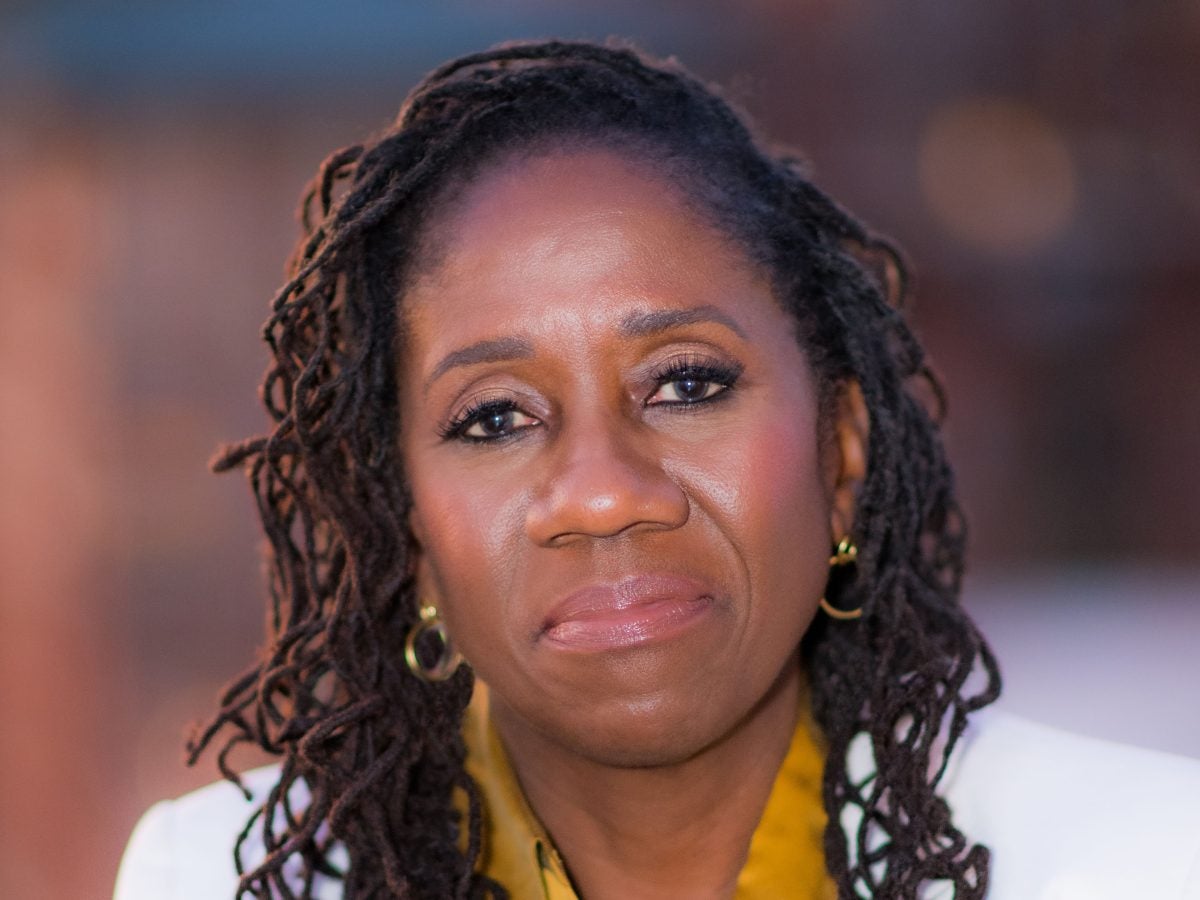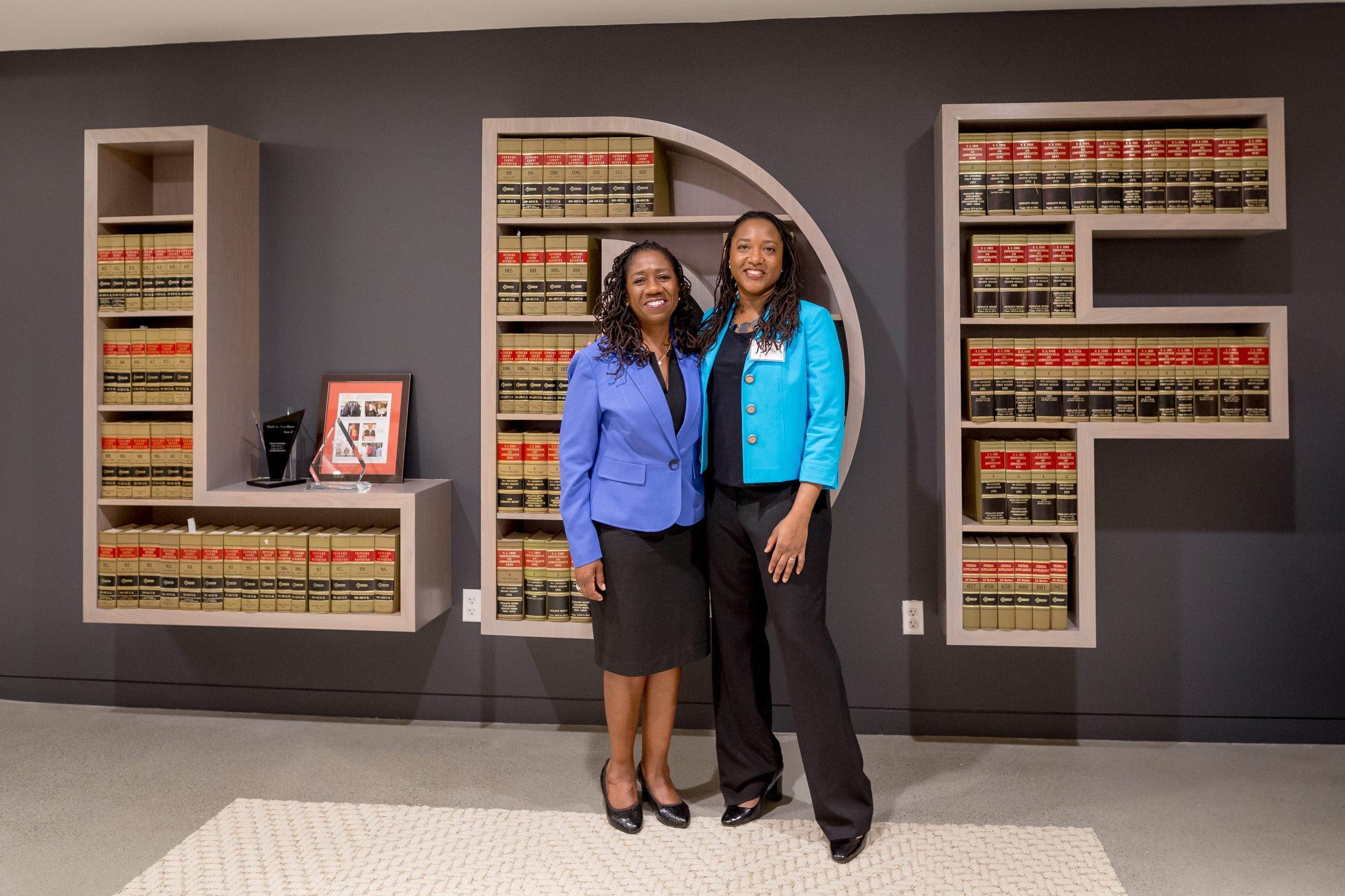
Sherrilyn Ifill, President and Director-Counsel of the NAACP Legal Defense and Educational Fund, has announced she is stepping down.
Ifill has led the racial justice organization for nearly a decade, taking the position in January 2013.
Janai Nelson, currently the Associate Director-Counsel, will assume Ifill’s role.
Under Ifill’s leadership, the LDF has grown both its staff and funding, leading legal fights for voting rights, economic justice, and racial equity.
“I love this organization so much,” she told ESSENCE. “I love our staff, and I love our work. But I’m also super thrilled that Janai will be taking the helm. She’s been a terrific partner with me in this work. And I’m just incredibly excited about the next chapter.”
Ifill first joined LDF in 1988 as Assistant Counsel, litigating voting rights cases for five years. She then taught at the University of Maryland School of Law before returning to LDF in 2013 and enhancing its presence.
“I think we have restored LDF’s influence and voice as a leader in shaping American democracy and in influencing the course of it,” she said. “Our staff was 55 when I started. We’ll be 230 at the end of this fiscal year. That growth is so we can meet whatever is the challenge. Our financial growth is so that we can meet the challenge.”
And the challenges are in no short supply.
“So much is happening that is genuinely disturbing, and particularly racial violence and the kind of abandon with which racial discrimination has re-emerged with the former president having given permission to many Americans to be their worst selves,” Ifill said, referring to America’s climate under Donald Trump.
“On the other hand,” Ifill added, “the tensions that have been lying below the surface have been surfaced. And that’s critically important. We can only fight effectively what we can see and identify. We were trying to alert people to this for some time,” including racial injustice she observed that persisted— like voter suppression, housing discrimination, and educational inequity— even under a Black president and Attorney General.
The LDF is continuing to grow to face these issues, including expanding to Atlanta with a southern regional office, and it will have a new leader in Janai Nelson to guide the organization beginning spring 2022.
“Janai is just flat out brilliant and courageous and determined and loves LDF, loves our staff, [and] loves Black people.”

Ifill, meanwhile, will be working on a book to address what has been exposed in America over the last several years, she said. “It will pull together my thinking about where we are in this country and it will help me think through the way I want to next contribute to my lifelong work seeking racial justice and equality.”
Nelson told ESSENCE she is “incredibly honored” with the responsibility. The work facing her is also sobering. “This is not a frivolous moment that we’re in,” she stated.
“We saw an unprecedented movement last year in response to the violent killings of Black people. [It was] a very unique moment where so many people in this country were seeing the same thing at the same time for what felt like maybe the first time in this country’s history.”
This unity, Nelson noted, “was across races, across generations, across ethnicities, even across class. There was clarity and unity of thought in many ways that held so much promise. And I still think that promise is there. But there’s been such a significant backlash,” she said.
With the trials of Kyle Rittenhouse, the murder of Ahmaud Arbery, and Charlottesville concurrently underway, these divisions in both the legal system and the general public are ever-present.
“There’s been such a level of distraction from that moment, that we now have to claw our way back to reignite that type of passion and that type of drive for transformative change in our society.”
As part of re-focusing the aims of the movement, Nelson notes the LDF will be addressing “collective” issues, like the underfunding of public schools and the lack of support for students who had “an incredibly disruptive 18 months” with remote learning.
Further, the historic organization plans to challenge disinformation that has extended beyond rightwing pundits or social media to politicians who have adopted reactionary rhetoric to censor lessons in public K-12 schools that reference racism.
“Without the ability to tell truth, without being armed with actual facts, we can’t demand justice. That demand will not be heard if there is some disillusion” about these facts and history, she noted.
Nelson first encountered LDF when she externed as a law student. “I wound up working on a case involving transportation access in Los Angeles. At a very basic level, the case was about bus routes and funding to get more transportation to Black and brown communities. I was just transfixed by the fact that you could use law and litigation to change something as mundane as a bus route. But that one change could transform lives,” she shared. “It could allow parents to come home earlier, to do homework with their kids or make breakfast for them in the morning, because they didn’t have to get up as early to get to a bus stop that was exceedingly far away. And I saw that impact litigation could have just that, a transformative impact.”
WATCH: Nikole Hannah-Jones and Janai Nelson of the NAACP LDF discuss possible discrimination at the University of North Carolina and rightwing backlash after the 2020 protest movement.
Nelson has continued to find fulfillment in the work at LDF as she prepares to lead the organization.
“It has been an absolute honor and privilege to work alongside her for nearly eight years and helping to lead this institution,” Nelson shared with ESSENCE, referring to her time with Ifill. “The sisterhood that we’ve been able to forge, I think has enriched the joy of this work for me. And I can only hope that that sisterhood and that friendship and that joy has been an inspiration to others that we’ve worked with. Because this work is incredibly difficult. It’s incredibly taxing. And you have to be able to find joy in it. And that’s what we’ve been able to do.”




